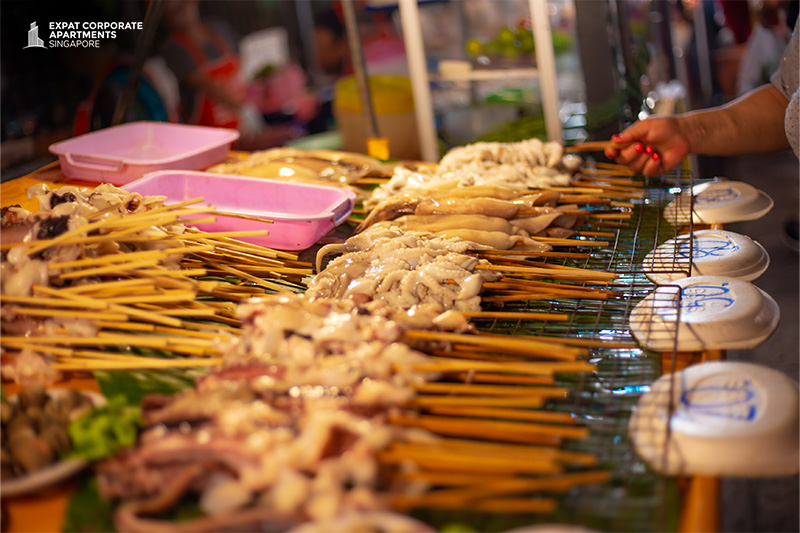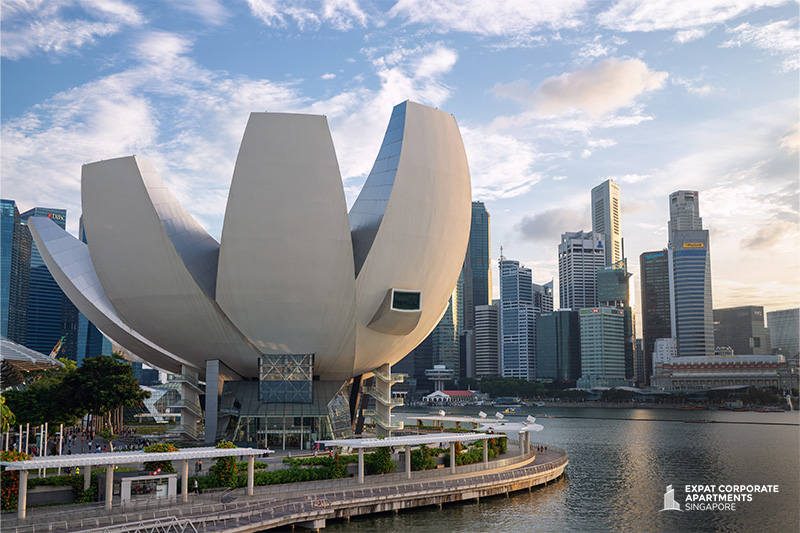Welcome to the vibrant and diverse city-state of Singapore, a bustling metropolis that has become a top choice for expats seeking new opportunities and adventures. With its flourishing economy, modern infrastructure and rich cultural heritage, Singapore offers a unique blend of East and West that attracts people from all corners of the world. In this comprehensive guide, we will take you through the ins and outs of working and staying in Singapore, be it in an affordable serviced apartment or a rented HDB and provide you with all the valuable insights and tips you need to make your transition smooth and enjoyable.
Before you embark on a new journey as an expat in Singapore, understanding the country’s culture, laws and work culture is crucial for a seamless transition. By immersing yourself in the local way of life, you not only enhance your overall experience but also pave the way for successful integration into Singaporean society. From the competitive job market and the fascinating cultural tapestry to the art of living like a local, we have got you covered. Singapore is a city bursting with possibilities, and we are thrilled to be your guide on this exciting journey. So, fasten your seatbelts, pack your curiosity, and get ready to embark on a delightful adventure in the Lion City!
Getting A Job In Singapore
Singapore’s job market is a treasure trove of opportunities, attracting expats from far and wide to establish their careers in this thriving city-state. Renowned for its robust economy and diverse industries, Singapore provides a fertile ground for professionals seeking growth, innovation and success. From finance and technology to healthcare and logistics, the range of sectors is vast and vibrant, catering to a multitude of skills and aspirations. The city-state’s strategic location and business-friendly policies have also attracted numerous multinational corporations, making it a global hub for commerce and innovation.
Learn More – Tips for Integrating Into Singapore as an Expat
To navigate this dynamic job market effectively, understanding its landscape, visa requirements and effective job-hunting strategies will greatly enhance your chances of securing employment here.
- Overview of Singapore’s Job Market and Popular Industries
Singapore’s economy is characterised by its strong sectors, which include finance, technology, healthcare, logistics, tourism, and engineering. The financial industry, particularly banking and finance, holds a prominent position in the job market, with major international banks and financial institutions operating in the city-state. This sector provides a wide array of roles, including investment banking, wealth management, risk management, and financial advisory services.
The technology sector in Singapore is rapidly growing, driven by the nation’s ambition to become a smart nation. This sector offers exciting prospects for professionals with skills in software development, data analytics, cybersecurity, and artificial intelligence. With government initiatives supporting technological innovation and entrepreneurship, startups and established tech companies find Singapore an attractive destination to establish their presence.
The healthcare industry is another thriving sector in Singapore. The city-state has gained recognition as a leading medical hub in Asia, offering state-of-the-art healthcare facilities and a robust ecosystem for medical research and innovation. The demand for healthcare professionals spans various disciplines, including doctors, nurses, researchers, and healthcare administrators.
- Visa and Work Permit Requirements For Expats
In order to work legally in Singapore as an expat, you will need to first obtain a Singapore work visa, also known as a Pass. Depending on the type of work you do and your skill level, there are different types of Singapore visas you can apply for.
-
- Employment Pass – The Employment Pass (EP) is typically granted to foreign professionals, managers, executives and technicians with a job offer from a Singapore-based employer, relevant qualifications and a monthly salary of at least $4,500.
- S-Pass – The S-Pass is granted to mid-level skilled workers with relevant educational qualifications, work experience requirements and a monthly salary of at least $3,000.
- Work Permit – The Work Permit is only available for foreign workers from certain countries and allows work only in certain sectors such as construction, manufacturing, marine, shipyard, process or services industries.
It is crucial to understand the specific requirements and eligibility criteria for the respective work passes to ensure a smooth application process.
Tips For Job Hunting In Singapore
Here are some ways you can land yourself a job that matches your skills and interests.
-
- Networking – Build connections through professional networks, industry events, and online platforms to gain valuable insights and potential leads. Attend industry conferences, seminars, and workshops to expand your network and engage with professionals in your field.
- Online job portals – Utilise popular platforms like JobStreet, LinkedIn, Indeed, and JobsDB to create profiles, upload resumes, and apply for relevant positions. Regularly updating your profile and optimising it with relevant keywords will increase your visibility to potential employers.
- Resume and cover letter customisation – Tailor your application materials to the Singaporean job market, highlighting relevant skills, experiences, and achievements.
- Recruitment agencies – Seek assistance from specialised recruitment agencies with expertise in placing candidates in Singapore. These agencies have a deep understanding of the local job market and can provide guidance and support throughout the job search process.
- Job fairs and career expos – Attend these events to directly interact with hiring managers and explore opportunities across various industries.
Adapting To Singapore’s Culture and Lifestyle
Singapore is a melting pot of diverse cultures, languages, and religions, making it a vibrant and multicultural society. As an expat who is working and staying in Singapore, it is important to embrace and understand the local culture and lifestyle to enhance your experience and establish meaningful connections with the local community.
Overview Of Singapore’s Culture
Singapore’s culture is a rich tapestry woven by its multicultural population. The country is known for its harmonious coexistence of different ethnic groups, languages, and religions. The four major ethnic groups – Chinese, Malay, Indian, and Eurasian – contribute to the cultural diversity and traditions of Singapore, with English being the primary language used for business and administration. One unique aspect of Singapore’s culture is Singlish, a colloquial form of English that incorporates words and phrases from various languages spoken in Singapore. While Singlish is widely understood and used in informal settings, it is important to note that it may differ from standard English and may not be appropriate in formal or professional contexts.
Learn More – Tried & Tested Tips for Beating Expat Loneliness
Religion holds a significant place in the local society, and there is a harmonious coexistence of different faiths. Buddhism, Islam, Christianity, Hinduism, and Taoism are the major religions practised in Singapore. Places of worship, such as temples, mosques, churches, and gurdwaras, can be found throughout the country, reflecting the religious diversity and tolerance embraced by Singaporeans. Respect for religious diversity is crucial, and it is important to be aware of and observe the customs and practices associated with different religions.
Tips For Adapting To Singapore’s Culture and Lifestyle
-
- Learn Basic Phrases – Familiarise yourself with common greetings and expressions in the local languages. Even simple phrases like “Hello” (in English), “Ni hao” (in Mandarin), “Selamat pagi” (in Malay), or “Vanakkam” (in Tamil) and other Singlish phrases such as “Can or not?” (meaning “Is it possible?”), or “No need lah!” (expressing dismissal or unnecessary action) can help you break the ice and establish a friendly rapport with the locals.
- Embrace Customs and Social Norms – Singaporeans place importance on politeness, respect, and harmony. It is customary to greet others with a handshake or a slight bow. Removing your shoes when entering someone’s home or religious places is also a common practice.
- Immerse Yourself in the Local Culture – Participate in cultural festivals, such as Chinese New Year, Hari Raya, Deepavali, and Christmas, to experience the vibrancy and diversity of Singapore’s celebrations. Visit cultural heritage sites like Chinatown, Little India, and Kampong Glam to gain deeper insights into the respective cultures.
Understanding Singaporean Diverse Cuisine
Singapore is a food lover’s paradise, celebrated for its diverse and mouth-watering cuisine that reflects its multicultural heritage. The heart and soul of Singapore’s culinary scene can be found in its hawker centres, and bustling food courts where locals and visitors alike gather to indulge in a wide array of affordable and delicious dishes.
Exploring Singapore’s food culture is an adventure in itself. One cannot miss the opportunity to savour iconic local delicacies such as Hainanese Chicken Rice, a fragrant dish of poached chicken served with flavorful rice; Laksa, a spicy coconut-based noodle soup bursting with robust flavours; Char Kway Teow, a stir-fried noodle dish with succulent seafood and smoky flavours; or Roti Prata, a crispy flatbread served with a side of savoury curry.
Venturing into street food stalls, known as “hawker stalls,” allows you to discover hidden gems and tantalise your taste buds with a vast array of flavours. From juicy satay skewers to delectable oyster omelettes, from aromatic chilli crab to flavoursome fried carrot cake, the options are endless. Singapore’s food scene is a testament to the city’s cultural diversity, and trying new flavours and dishes is a delightful way to immerse yourself in the local gastronomic wonders.
Shopping Scene In Singapore
As a haven for avid shoppers, Singapore offers an abundance of retail options that cater to every wants and budget. At the heart of the city’s shopping scene is Orchard Road, a bustling thoroughfare renowned as Singapore’s premier shopping belt. Here, you’ll find a dazzling array of high-end boutiques, department stores, and luxury brands, making it a paradise for fashion enthusiasts and discerning shoppers.
For a more authentic and vibrant shopping experience, explore the local markets scattered throughout Singapore. Chinatown’s street stalls offer a treasure trove of goods, from traditional crafts and souvenirs to delectable snacks. Bugis Street is another popular destination, known for its bustling market atmosphere and affordable fashion finds. Browse through a wide selection of trendy clothing, accessories, and quirky souvenirs.
For a unique shopping experience, venture into Haji Lane, a charming enclave in the Arab Quarter. This trendy street is lined with independent boutiques, vintage stores, and concept shops, offering a curated selection of fashion, accessories, and unique finds. It’s a perfect spot for those seeking one-of-a-kind items and a taste of Singapore’s vibrant urban culture.
Whether you’re seeking high-end luxury or budget-friendly bargains, Singapore’s shopping scene has something for everyone. From extravagant malls to bustling markets and trendy enclaves, the city presents a plethora of options to satisfy any shopaholic’s desires.
Popular Entertainment and Leisure Activities in Singapore
When the sun sets, the city comes alive with an exciting nightlife scene. From rooftop bars offering breathtaking city views to energetic nightclubs and live music venues, there is no shortage of options for those seeking a thrilling night out. Nature enthusiasts will find solace in Singapore’s green spaces. Gardens by the Bay is a must-visit destination, with its iconic Supertrees, mesmerising light shows, and beautiful flower domes. The Singapore Botanic Gardens, a UNESCO World Heritage Site, is another haven for nature lovers, featuring lush greenery, serene lakes, and a variety of plant species.
Immerse yourself in Singapore’s rich culture and history by exploring its museums. The National Museum of Singapore showcases the nation’s heritage through interactive exhibits and captivating displays. The ArtScience Museum, located at Marina Bay Sands, combines art, science, and technology in innovative and thought-provoking exhibitions. For family-friendly fun, Sentosa Island is a treasure trove of attractions. Visit Universal Studios Singapore for thrilling rides and entertainment based on blockbuster movies. Enjoy the S.E.A. Aquarium, home to a diverse range of marine life, or have a splashing good time at Adventure Cove Waterpark.
No matter your interests, Singapore offers an abundance of entertainment and leisure activities to keep you engaged and entertained. From the city’s dynamic nightlife to its serene green spaces, fascinating museums and family-friendly attractions, there is something for everyone to enjoy and create lasting memories in the Lion City.
Living In Singapore – Cost Of Living
Living in Singapore offers a unique experience in a dynamic and cosmopolitan city-state. However, it’s important to be aware of the cost of living, as it can be relatively high compared to other countries. Understanding the expenses associated with dining, transportation, and housing will help you plan your budget effectively and make the most of your time in Singapore.
Learn More – 4 Issues Expats Face When Looking for A Rental Home
Food expenses in Singapore can vary depending on your dining preferences. While hawker centres and local food stalls offer affordable options, dining out at restaurants and trying international cuisines can be relatively pricey. It’s recommended to explore the local food scene and indulge in the diverse range of affordable and delicious dishes available at hawker centres. Planning your meals and occasionally cooking at home can also help manage food expenses.
Transportation expenses in Singapore can also add up. While public transportation is well-developed and efficient, the cost of using buses and trains on a daily basis can be significant. It is advisable to consider purchasing an EZ-Link card, which offers discounted fares for frequent travellers. Additionally, owning a car in Singapore can be expensive due to high taxes and limited road space. Many residents rely on public transportation, ride-sharing services, or cycling as more affordable alternatives.
Housing in Singapore forms a significant part of the cost of living. The city-state has a diverse range of housing options, from public housing flats (known as HDB flats) to private condominiums and landed properties. The prices vary depending on the location and size of the property. Renting a place can be quite expensive, especially in popular areas like the city centre. It’s advisable to research different neighbourhoods and consider your budget before making a decision.
Accommodation Options In Singapore
When it comes to accommodation options in Singapore, residents have a variety of choices to suit their preferences and budget. Understanding the different types of housing available can help you make an informed decision that aligns with your needs and lifestyle.
One of the most common housing options in Singapore is HDB flats, public housing flats built and managed by the Housing Development Board. HDB flats offer affordable and spacious living spaces, with amenities like schools, parks, and shopping centres conveniently located nearby. However, as these flats are owned by the government, there are certain restrictions on their sale and rental, and eligibility criteria for ownership.
Condominiums, also known as condos, are another popular choice in Singapore. These are privately owned residential developments that offer a range of facilities such as swimming pools, gyms, and security services. Condos provide a more upscale and luxurious living experience compared to HDB flats, but they come with higher costs in terms of purchase or rental fees and monthly maintenance fees.
Landed properties, including terraced houses, semi-detached houses, and bungalows, are standalone houses with their own land. These properties offer more privacy and space, making them suitable for families or individuals who prefer a larger living area. However, landed properties are generally more expensive and have stricter regulations in terms of ownership and development.
In addition to these traditional housing options, serviced apartments in Singapore have gained popularity in recent years. Serviced apartments are fully furnished accommodations that offer hotel-like amenities and services, including housekeeping, laundry, and 24-hour security. They provide convenience, flexibility, and cost-effectiveness, making them an attractive option for expats, business travellers, and individuals on short-term stays. These apartments in Singapore come in various configurations, such as studio, one-bedroom serviced apartments, and two-bedroom options, allowing residents to choose based on their needs and preferences.
Compared to hotels, affordable serviced apartments in Singapore offer a distinct advantage in terms of space and a homier atmosphere. Unlike hotel rooms that typically consist of a single bedroom and a bathroom, two-bedroom serviced apartments provide separate living areas, bedrooms, and often fully equipped kitchens. This additional space allows you to spread out and enjoy a more comfortable living experience, especially for longer stays.
The inclusion of a fully equipped kitchen is a significant advantage as well. You have the freedom to prepare your meals, which can be cost-effective and convenient, especially for those who prefer home-cooked meals or have dietary restrictions. Short-term serviced apartments also often offer flexible lease terms, giving you more options compared to traditional rental apartments. This flexibility is particularly beneficial for expats, business travellers, and individuals who require temporary accommodation during a relocation or project.
In addition to the practical advantages, staying in a serviced apartment offers a more personal and home-like feel. The presence of amenities such as laundry facilities, housekeeping services, and 24-hour security further enhances convenience and peace of mind.
When considering accommodation options, it’s essential to weigh the pros and cons of each choice. HDB flats offer affordability and simplicity, but they have certain restrictions. Condos provide luxury and facilities, but they are pricier. Landed properties offer privacy and space, but they have stricter regulations and are way more costly. Serviced apartments combine the comforts of home with the practicality of hotel-like services, making them a popular choice for those seeking flexibility and cost-effectiveness.
Ultimately, the choice of accommodation in Singapore depends on your personal preferences, budget, and the duration of your stay. Considering factors such as location, amenities, cost, and lifestyle will help you find the ideal living space that suits your needs and ensures a comfortable and enjoyable experience in Singapore.
Frequently Asked Questions
- Are serviced apartments in Singapore more cost-effective than hotels?
Yes, serviced apartments offer cost-effectiveness for longer stays, as they provide more space, fully equipped kitchens, and flexible lease terms, allowing residents to save on dining and accommodation expenses. - What amenities are typically included in serviced apartments?
Serviced apartments often include amenities such as housekeeping, 24-hour security, laundry facilities, fitness centres, and sometimes swimming pools, providing convenience and a hotel-like experience. - Can I rent a serviced apartment on a short-term basis?
Yes, many serviced apartments in Singapore offer flexible lease terms, allowing residents to rent on a monthly or weekly basis, providing temporary accommodation options for business trips, relocations, or extended stays.
Singapore – The Land Of Opportunities and Experiences
To make the most of your stay in Singapore and enjoy everything this little island has to offer, careful research, planning and understanding are required. By taking the time to familiarise yourself with the local culture, job market and lifestyle, you can ensure a smoother transition, making your experience memorable and fulfilling. And when it comes to accommodation, no one does it better than Expat Corporate Apartments.
Offering various serviced apartments for rent in Singapore monthly, we take pride in offering the best accommodation at the lowest monthly rates possible. With a range of high-quality facilities and features and a dedicated team to assist you every step of the way, you never have to worry about your new home away from home. Contact us today to know more!











